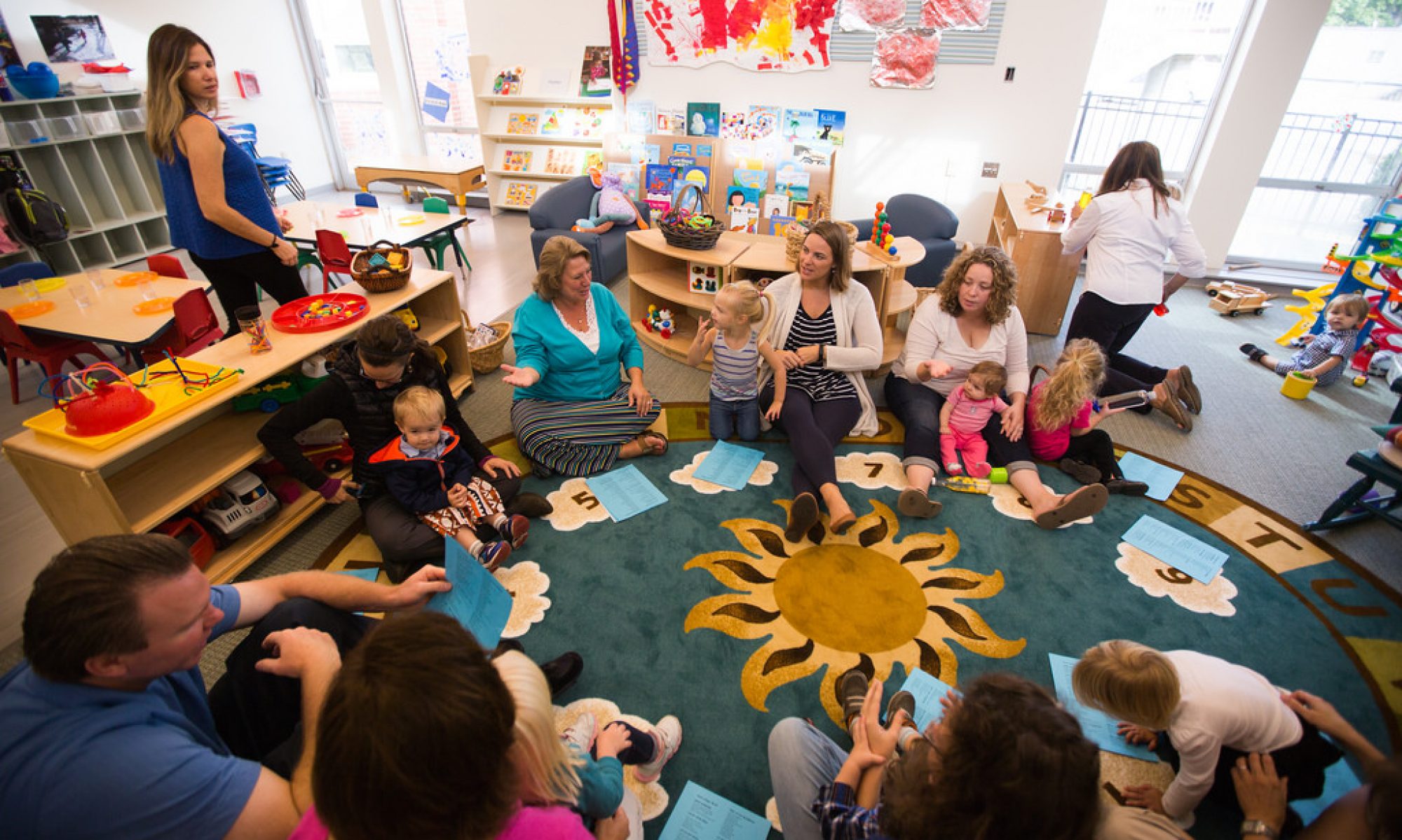by Dorothy Halverson, Principia’s Director of Acorn Programs
 A question frequently asked by parents is, “Is it possible to expect my baby to lie still for a diaper change?” Diaper changes can seem like a wrestling match once your little one has learned to turn over from back to front, or crawl or walk. Practicing those skills are much more interesting for your baby than lying still for a routine diaper change. Rather than making a struggle of it, the parent should foster baby’s willingness. Look at this as a period for happy one-on-one time with your baby. Use diaper changing as a time to talk and sing songs to your baby. Put aside a few special toys for your baby to hold while being changed. Rather than just focusing on the task to be done, routine diaper changes can turn into fun for both the parent and the child.
A question frequently asked by parents is, “Is it possible to expect my baby to lie still for a diaper change?” Diaper changes can seem like a wrestling match once your little one has learned to turn over from back to front, or crawl or walk. Practicing those skills are much more interesting for your baby than lying still for a routine diaper change. Rather than making a struggle of it, the parent should foster baby’s willingness. Look at this as a period for happy one-on-one time with your baby. Use diaper changing as a time to talk and sing songs to your baby. Put aside a few special toys for your baby to hold while being changed. Rather than just focusing on the task to be done, routine diaper changes can turn into fun for both the parent and the child.
Cooperation can also be gained while dressing your baby by playing games. Babies love to play peek-a-boo games, so play peek-a-boo with your child’s hands and feet as they go into sleeves and pant legs. As you get ready to zip the zipper, you can say “ZZZZZZZZip!” When snapping, say “snnnnnnnap!” Your baby will giggle with delight.
The introduction of solid foods may begin as early as 3 months. Introducing new foods helps expand your child’s palate. Start with just one teaspoon of smooth cereal, fruits, or vegetables. This will help your baby get used to other tastes, though he main food will still be milk. Never force your baby to eat foods he doesn’t want to eat.
Some babies and toddlers have a difficult time leaving their mothers, and some mothers never leave their children in someone else’s care. The parent should look for a right balance of togetherness with each child. If a mother is staying at home with her child, she should find some times to leave the child with a competent sitter when the child is awake, even if she just goes into another room of the home to have some time for herself. This will also help the child learn that after mommy leaves, she will return.
As you work with your baby, respecting his tastes and wishes, keeping a regular routine while allowing some exceptions, your baby can learn to be flexible and cooperative.

